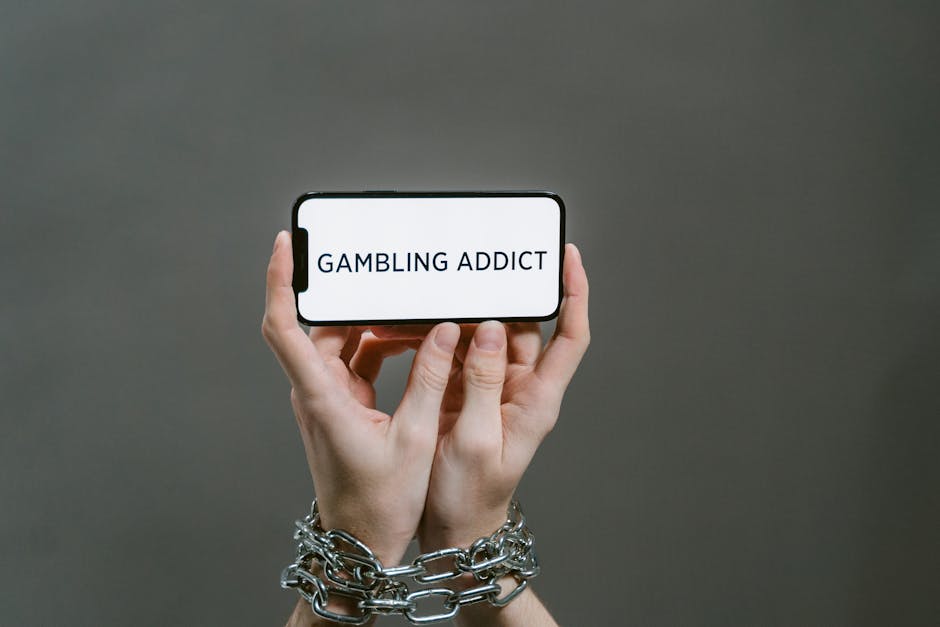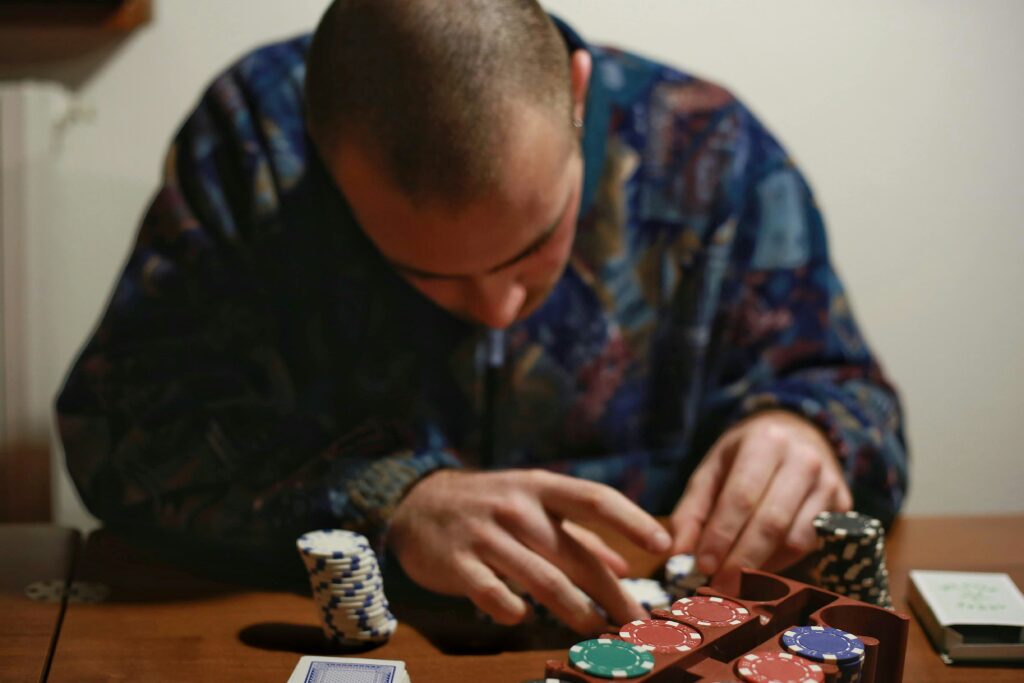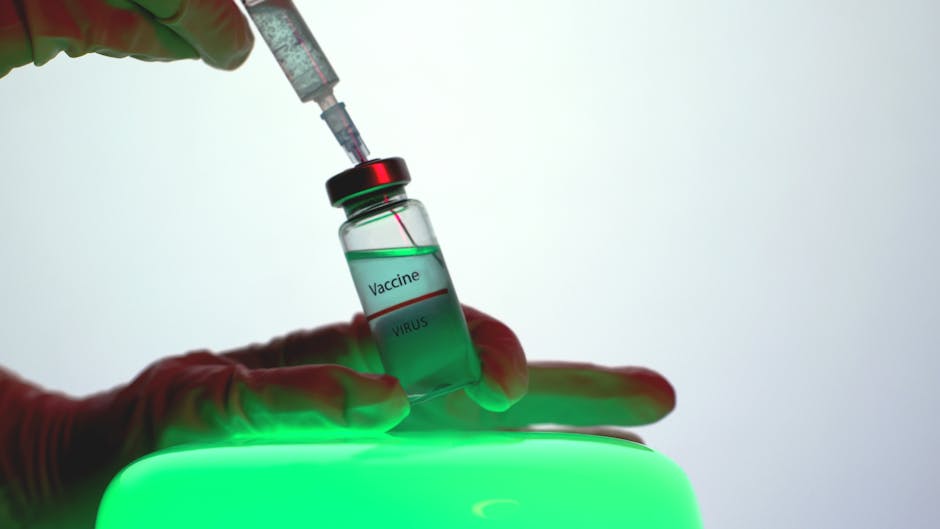Navigating the complexities of supporting a loved one struggling with a gambling addiction can be a challenging journey. In my experience, understanding the pivotal role that family and friends play in this process is crucial. When faced with the impact of addiction, it’s essential to recognize that the support system surrounding the individual can make a significant difference in their recovery.
As I delve into the dynamics of how family and friends can positively influence a gambling addict’s journey to recovery, I’ll explore practical strategies and insights that can foster a supportive environment. By shedding light on the importance of empathy, communication, and setting boundaries, I aim to provide valuable guidance for those seeking to assist a loved one in overcoming their addiction.
Understanding Gambling Addiction
Gambling addiction, also known as compulsive gambling or gambling disorder, is a serious mental health condition that can have devastating effects on individuals and their loved ones. The psychology behind gambling addiction is complex, involving a combination of biological, psychological, and environmental factors.
The Psychology Behind Gambling
In the realm of psychology, gambling addiction is often classified as an impulse control disorder. It involves a lack of ability to resist impulses to gamble, leading to negative consequences in various areas of life. Factors such as the thrill of risk-taking, the excitement of winning, and the escape from reality can all contribute to the development and maintenance of a gambling addiction.
Signs of Gambling Addiction
Recognizing the signs of gambling addiction is crucial in providing support to those affected. Common indicators include an increasing preoccupation with gambling, difficulty controlling the urge to gamble, lying about gambling activities, borrowing money to gamble, and experiencing withdrawal symptoms when not gambling. It’s essential to be attentive to these signs to intervene early and help the individual seek treatment and support.
The Role of Family in Supporting a Gambling Addict
As a family member of a gambling addict, my support plays a vital role in their recovery journey. Here are key ways I can aid them:
Offering Emotional Support
I provide a safe space for the gambling addict to express their feelings without judgment. By actively listening and showing empathy, I can help them feel understood and less isolated in their struggles.
Setting Boundaries and Consequences
Establishing clear boundaries is essential to protect both the addict and myself. By setting limits on enabling behaviors and communicating consequences for continued gambling, I can encourage accountability and healthier choices.
The Role of Friends in Providing Support

As a friend, I play a significant role in assisting a gambling addict on their path to recovery. Here are ways in which I can provide valuable support:
- Being an Accountability Partner
I must be a reliable accountability partner for my friend struggling with a gambling addiction. By regularly checking in on their progress, offering encouragement, and holding them answerable for their actions, I help reinforce their commitment to change. - Encouraging Professional Help
It’s essential for me to encourage my friend to seek professional help from addiction counselors or support groups. Professional intervention can provide them with the necessary tools, guidance, and expertise to address their addiction effectively. By encouraging this step, I show my friend that I support their journey towards recovery.
Effective Communication Strategies
When discussing gambling addiction with a loved one, it’s crucial to approach the topic with sensitivity and understanding. I find that using a calm and non-judgmental tone can help create an open dialogue about their struggles. Additionally, avoiding blame and expressing concern for their well-being is essential.
How to Talk About Gambling Addiction
In my experience, initiating a conversation about gambling addiction requires choosing the right time and setting. I’ve found that having this discussion in a private and quiet space can help the individual feel more comfortable opening up. It’s important to listen actively, show empathy, and offer support rather than criticism.
Avoiding Enabling Behaviors
In supporting a friend or family member with a gambling addiction, I’ve learned that it’s vital to refrain from enabling their destructive habits. This means not bailing them out of financial troubles caused by gambling or covering up their addiction. Setting clear boundaries and encouraging them to take responsibility for their actions are crucial steps in helping them break free from the cycle of addiction.
Professional Resources and Support Systems
As I delve deeper into the support structures for gambling addiction, it’s essential to consider the role of professional resources and support systems in aiding recovery. Here, I’ll discuss the significance of therapies and counselors, as well as the benefits of support groups and rehabilitation programs in combating gambling addiction effectively.
Therapies and Counselors
When tackling gambling addiction, seeking therapy and counseling can play a pivotal role in the recovery journey. Therapists and counselors specialized in addiction can provide crucial support by addressing underlying psychological issues that may contribute to the addiction. Cognitive-behavioral therapy (CBT) is particularly effective in treating gambling addiction by helping individuals identify and change unhealthy thought patterns and behaviors associated with gambling.
Engaging with a therapist or counselor can offer personalized strategies to manage cravings, develop coping mechanisms, and navigate triggers that lead to gambling behavior. These professionals can provide a safe and non-judgmental space for individuals to explore the root causes of their addiction, work through emotional challenges, and cultivate healthier habits for long-term recovery.
Support Groups and Rehabilitation Programs
Support groups and rehabilitation programs tailored to individuals struggling with gambling addiction offer a sense of community, understanding, and shared experiences. Joining support groups like Gamblers Anonymous can provide much-needed peer support, encouragement, and accountability in the recovery process. These groups often follow a structured program that involves step-by-step guidance, sharing personal stories, and fostering a supportive environment for individuals to connect and learn from others facing similar challenges.
Rehabilitation programs designed specifically for gambling addiction can offer comprehensive treatment plans that incorporate therapy, counseling, behavioral interventions, and holistic approaches to address the multifaceted aspects of addiction. These programs may include inpatient or outpatient options, depending on the individual’s needs and severity of the addiction. By participating in such programs, individuals can receive tailored support to address their addiction, regain control over their lives, and build the necessary skills for sustainable recovery.




